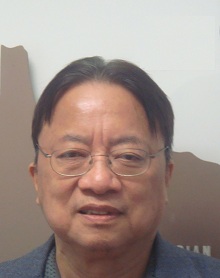Prof. David Yuen [University of Minnesota, USA & 太观技术, China]
Title: A Challenging Geodynamical and Geochemical Scenario: The Injection of Water into bottom of Lower Mantle
Time: 11:00 - 12:00 PM, Thursday, January 18, 2018
Place: Conference room 410, HPSTAR (Shanghai)
Host: Ho-Kwang Mao
Abstract:
Recent enthralling findings by the HPSTAR group have indeed raised the prospects of abundance of water existing in the deep mantle. The impact from hydrous phase at the base of the mantle is profound and has wide_ranging consequences on the Earth, s surface in the form of global -scale instabilities . Today I will lead a discussion focusing on the need for more calculations and experiments for obtaining estimates of physical properties in the multi-phase aggregates . In particular, we should aim to put estimates on the viscosity at different scales and various phases in order to understand better the possibilities of mechanisms , such as multi-scale Rayleigh-Taylor instabilities involving multi_phase , multi species under temperature and high pressure conditions
Biography of the Speaker:

Prof. David Yuen graduated in 1969 from Caltech in chemistry. He then received a master in physical chemistry from UC Berkeley and a PHD in geophysics and geophysics in 1978 with a minor in applied mathematics from UCLA Following a two year NATO and NSF postdoctoral fellowships, he went to Arizona State University as assistant professor in geology. In 1985 he moved two times, first to Dept. of Geological Sciences at university of Colorado at Boulder in January as associate professor, then in September to University of Minnesota, as associate professor in geophysics and Fellow of Minnesota Supercomputer Institute. Since 2012, he has been spending 3 to 4 months each year at the School of Environmental Studies at 中国地质大学武汉 as a 长江 professor. He works mainly in computational geodynamics with interests also spanning to visualization and now Big Data大数据. He has published around 550 papers and edited six books in geophysics and high-performance computing. His h-index is 61 according to Thomas-Reuters.
